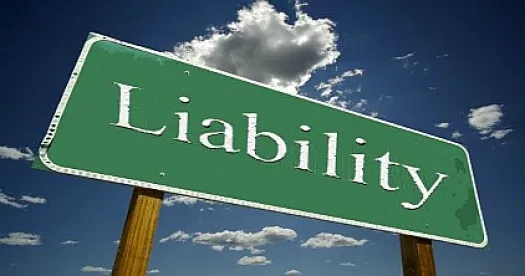Almost 40 years ago the Arizona Supreme Court issued an opinion which has had a far-reaching impact on how insurance defense counsel report to the defending carrier. In Parsons v. Continental National American Group (“CNA”),[i] Mr. and Mrs. Parsons brought suit against a minor (Michael Smithey) and his parents for damages arising from an alleged attack. The suit alleged claims for both assault and negligence. The Smitheys were insured by CNA who retained counsel to defend the suit. Notably, the CNA policy contained an exclusion for damages resulting from intentional acts and CNA issued a reservation of rights to this effect.
During the course of defense counsel’s investigation, he obtained a confidential school report on the minor and reported to CNA that he thought that the incident “may have been deliberate.” Later, after interviewing the minor, he reported that: “…[h]is own [Michael Smithey’s] story makes it obvious that his acts were willful and criminal.” CNA continued to defend the matter.
After the close of evidence, the court directed a verdict in favor of the Parsons on the assault claim and awarded $50,000.00 in damages. Post-trial, CNA successfully defended a garnishment action on the grounds that the damages were precluded by the policy’s intentional acts exclusion.[ii] On appeal, the Parsons asserted that CNA should be estopped from denying coverage because it had taken advantage of the confidential relationship between counsel and its insured. The court of appeals agreed and held that the insurance company could not use the confidential relationship between counsel and client to gather information to deny coverage. As the only information regarding the intentional nature of the attack was obtained from defense counsel, CNA could not deny coverage based on the intentional acts exclusion.
As a result of the Parsons opinion, best practices provided that insurance defense counsel should not report confidential communication obtained from the insured which could affect coverage.
While insurance defense counsel’s ethical obligation is owed solely to the insured, both the insured and counsel also owe obligations to the defending carrier. The insured typically has a contractual duty to cooperate in the carrier’s investigation, defense, and settlement of the claim. As the insured’s agent, defense counsel has a duty to report facts accurately.[iii] However, what if facts determined during the development of the case potentially affect coverage? Must counsel refrain from reporting same to the carrier? The Parsons opinion is unclear on this critical point as it addressed counsel’s opinion rather than discovered facts.
An answer was recently given in Cosgrove v. National Fire & Marine Insurance Company.[iv] In Cosgrove, the plaintiff hired WTM Construction (“WTM”) to remodel her house. WTM retained various subcontractors to perform the remodel work. Plaintiff contended that WTM did a poor job and sued WTM and its principals in state court.
WTM was insured by National Fire & Marine Insurance Company (“National”) who agreed to defend WTM under a full reservation of rights. One of the policy provisions on which National reserved its rights was the “Subcontractor Exclusion.” In short, this exclusion provides that coverage will be denied for work performed by subcontractors unless the subcontractors agree in writing to (1) defend, indemnify, and hold the general contractor harmless from claims arising out of the subcontractor’s work, (2) obtain certain insurance coverage, and (3) have the general contractor named as an additional insured on obtained insurance policies. The exclusion is a typical method to ensure that risk is properly shifted not only from the general contractor to the subcontractors who perform the work at issue but also to the subcontractors’ insurance with the general contractor’s insurance being secondary or excess in responding to any claims.
During the course of the case, insurance defense counsel reported that he had been unable to locate written subcontracts between WTM and its subcontractors. Additionally, insurance defense counsel filed and served a third party complaint against the implicated subcontractors but only alleging common law indemnity claims due to the lack of subcontracts (which likely would have contained a contractual indemnity provision).
Based on this information, the adjuster determined that National had an 80% likelihood of defeating coverage. As such, it was only willing to offer 20% of the recommended settlement authority. As WTM was unwilling to fund the majority of any settlement, the matter proceeded to trial. On the eve of trial, plaintiff and WTM reached a settlement and entered into a “Morris Agreement”[v] that included a stipulated judgment, a covenant not to execute against WTM’s assets, and an assignment of WTM’s claims against National. Plaintiff then initiated a separate lawsuit in state court against National which was later removed to federal district court.
Both Plaintiff and National served cross-motions for summary judgment. In her motion, Plaintiff alleged a Parsons violation by defense counsel (attributable to the carrier) and argued that National should be estopped from denying coverage based on the Subcontractor Exclusion. National responded alleging that no Parsons violation occurred as the information regarding the existence of subcontracts was not confidential or privileged and could have been discovered independently (i.e., it could have been determined by a review of the third party complaint). The District Court agreed with Plaintiff and held that “there is no requirement that the information in question be independently confidential,” only that it “have been obtained via the attorney-client relationship and that the disclosure of the information be to the detriment of the insured.” An equally important point to the court was the fact that retained defense counsel had reported the lack of subcontracts prior to filling the third party complaint. The Court stated that, by the time the third party complaint was filed, “the Parsons violation has already occurred.” Lastly, the court indicated that the outcome might have been different if the insurer “had done its own investigation of WTM’s claims, rather than relying on the information disclosed by the attorney retained to represent WTM.”
While the Cosgrove opinion is not issued by an Arizona appellate court, it is a case that should give every Arizona insurance defense practitioner pause. While it may be clear in hindsight that reported information affects coverage, it may not be so clear at the time the information is reported.
Insurance defense counsel must be vigilant in ensuring that they do not unintentionally affect coverage for their clients. Best practice should be for counsel to: (1) be familiar with any issued reservation of rights letter, (2) refrain from reporting any information, whether obtained directly from the insured or not, which affects coverage, and (3) if they are unaware whether to report any particular information, to err on the side of not reporting.
[i] 550 P.2d 94 (Ariz. 1976)
[ii] Strangely, the same lawyer that defended the Smitheys in the underlying trial also defended CNA in the garnishment action.
[iii] Paradigm Insurance Company v. Langerman Law Offices, PA, 24 P.3d 594 (Ariz. 2001) (“[A]bsent any conflict or significant risk of conflict that compelled Langerman to act as it did, Langerman had a duty to Paradigm – regardless of whether Paradigm was a client.”)
[iv] 14-2229 (D. Ariz. Apr. 10, 2017)
[v] United Services Automobile Association v. Morris, 741 P.2d 246 (Ariz. 1987)




 />i
/>i
